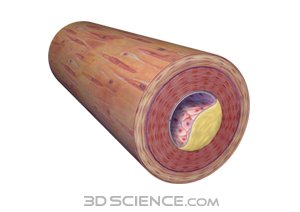|
Facts About Vitamin EOne of the important facts about Vitamin E: it is not as easy to get from our food and it is not well retained by the body. Major amounts are lost in the processing of food. Well that's more than one fact and here are some more: • Fat-soluble vitamin, but not retained by body as well as others • premier antioxidant • less easy to get from foods than others – major amounts are lost in processed foods • a deficiency of Vitamin E and selenium increases the risk of prostate cancer Proc Natl Acad Sci 2002:7408-7413 • maintains strong cell membranes • • as effective for Alzheimer’s patients as the drug Deprynel N Engl J Med 1997 (Apr 27) and 1997;336(17):1216-22 • essential in cellular respiration Alt Med • protects LDL cholesterol from oxidation N Engl J Med 1997:408-416 • maintains healthy DNA within the cell • helps prevent platelet aggregation Am J Clin Nutr 2003;77(3):700-706 • reduces rate of heart attack death in people with coronary atherosclerosis Lancet 1996; 347(9004):781-786 • reportedly, when starting to take as supplement, can elevate blood pressure in people with pre-existing hypertension – need to start with lower dose and work up – consult MD That's some of the facts about Vitamin E. More are in the book It's About Health. See below. For now let's go on to forms of Vitamin E.
Forms • always get natural vitamin E - d-alpha tocopherol (dl-alpha tocopherol is a synthetic form of vitamin E; while it is cheaper it is less effective – 25% less bioactivity) • natural extracts from soybean and rice-bran oil along with d-alpha tocopherol provide full spectrum Vitamin E
RDA RDA is quite low – 22.5 IU/day for adults (upper limit 1500 IU/day): • Adults 22.5 IU/day • Teens 16.5 IU/day • Children 1-4 years 9 IU/day; 4+ years 10.5 IU/day
Dosage by Supplements As d-alpha tocopherol: • Adults 400 IU/day • Teens 200 IU/day • Children 1-4 years old 50 IU/day; 4+ 100 IU/day
Vitamin E Toxicity • In patients with chronic rheumatic heart disease, supplementation, if started with high levels of Vitamin E, can lead to rapid deterioration or death. Nutr Alm 87. Consult an MD. • In patients with hypertension, supplementation, if started with high levels of Vitamin E, can lead to elevation of blood pressure. Nutr Alm 87. Consult an MD.
More Information You will find lots more information, including full citations and summaries of studies from medical journals in my book It’s About Health. But you can also continue to surf the 200 free pages of this website for lots of valuable, evidence-based information.
It’s About Health
|
 protects against coronary artery disease and wide range of neurological disorders and along with CoQ10 protects against the production of plaque in the arteries and helps to stabilize any existing arterial plaque thus preventing it from breaking off, blocking the artery and causing a heart attack or stoke
protects against coronary artery disease and wide range of neurological disorders and along with CoQ10 protects against the production of plaque in the arteries and helps to stabilize any existing arterial plaque thus preventing it from breaking off, blocking the artery and causing a heart attack or stoke
